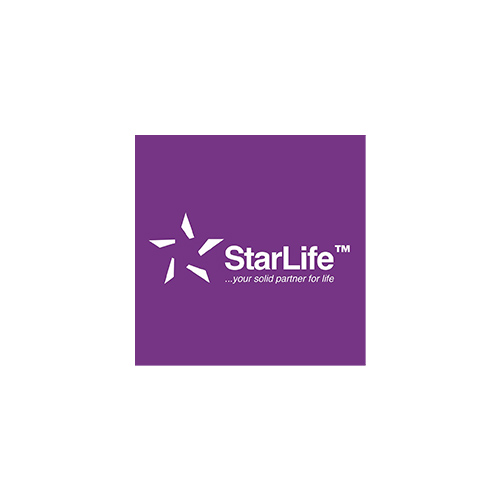
The United States, often hailed as the land of opportunity, attracts individuals from all corners of the globe seeking to fulfill their dreams and aspirations. Amidst the hustle and bustle of cities like New York and the tranquility of California’s landscapes, immigrants find a diverse array of opportunities to forge their paths and contribute to American society.
In this comprehensive guide, we delve into 20 migration and funding programs available in the USA for immigrants, offering detailed insights into each program’s eligibility criteria, application process, and available resources. Whether you’re a refugee seeking sanctuary, an entrepreneur looking to invest, or a student aspiring for education, there are avenues designed to support you at every step of your journey.
1. Green Card Lottery (Diversity Visa Program)
The Diversity Visa Program, commonly known as the green card lottery, provides individuals from countries with historically low rates of immigration to the United States the chance to obtain a green card through a randomized lottery system. This program, administered by the U.S. Department of State, aims to enhance diversity among immigrants to the United States.
Eligibility Criteria: Applicants must hail from countries with low rates of immigration to the United States, meet education or work experience requirements, and fulfill other criteria set by the U.S. Department of State.
Application Process: Eligible individuals can apply during the annual registration period through the official U.S. Department of State website.
Available Resources: The U.S. Department of State website offers comprehensive information about the Diversity Visa Program, including eligibility requirements, application instructions, and FAQs.
2. Family-Based Immigration
Family-based immigration allows individuals to immigrate to the United States based on their familial relationships with U.S. citizens or lawful permanent residents. Immediate relatives, such as spouses, parents, and unmarried children under 21 years old, receive priority in the family-based immigration system.
Eligibility Criteria: Immigrants may qualify for family-sponsored visas if they have qualifying relationships with U.S. citizens or lawful permanent residents.
Application Process: U.S. citizens or lawful permanent residents sponsor eligible family members by filing visa petitions with U.S. Citizenship and Immigration Services (USCIS).
Available Resources: USCIS provides detailed information about family-based immigration, including eligibility requirements, visa petition forms, processing times, and FAQs.
3. Employment-Based Immigration
Employment-based immigration permits individuals with specific job skills or sponsorship from U.S. employers to immigrate to the United States for employment purposes. This category includes various visas, such as EB-1 visas for individuals with extraordinary ability, EB-2 visas for professionals with advanced degrees, and EB-3 visas for skilled workers.
Eligibility Criteria: Immigrants with specific job skills or sponsored by U.S. employers may be eligible for employment-based visas in categories such as EB-1, EB-2, and EB-3.
Application Process: Employers typically file visa petitions on behalf of eligible immigrant workers with USCIS.
Available Resources: USCIS and the U.S. Department of Labor offer information about employment-based immigration, including visa categories, eligibility requirements, application procedures, and labor certification requirements.
4. Refugee And Asylum Programs
The United States provides protection to refugees and asylum seekers fleeing persecution or a well-founded fear of persecution in their home countries. Refugees apply for resettlement from outside the United States, while asylum seekers apply for protection after arriving in the country.
Eligibility Criteria: Individuals fleeing persecution based on race, religion, nationality, political opinion, or membership in a particular social group may qualify for refugee or asylum status.
Application Process: Refugees apply for resettlement through the U.S. Refugee Admissions Program, while asylum seekers submit Form I-589 with USCIS or through immigration court proceedings.
Available Resources: The U.S. Department of State, USCIS, and nonprofit organizations offer information and assistance to refugees and asylum seekers, including resettlement services, legal representation, and social support programs.
5. Temporary Protected Status (TPS)
Temporary Protected Status (TPS) offers temporary immigration status to individuals from countries facing ongoing armed conflict, environmental disasters, or other extraordinary conditions. TPS protects from deportation and permits individuals to work legally in the United States for a designated period.
Eligibility Criteria: TPS may be granted to individuals from designated countries facing ongoing armed conflict, environmental disasters, or extraordinary conditions.
Application Process: Eligible individuals apply during designated registration periods announced by USCIS.
Available Resources: USCIS provides information about TPS eligibility, application procedures, registration periods, and country-specific designations.
6. Investor Visas (EB-5)
The EB-5 Immigrant Investor Program enables foreign investors to obtain permanent residency by investing a specified amount of capital in a new commercial enterprise in the United States. To qualify for an EB-5 visa, investors must invest either $900,000 in a targeted employment area or $1.8 million in a non-targeted area and create or preserve at least 10 full-time jobs for U.S. workers.
Eligibility Criteria: Immigrant investors who invest a specified amount of capital in a new commercial enterprise in the United States may be eligible for an EB-5 visa.
Application Process: Immigrant investors must file Form I-526 with USCIS to demonstrate their eligibility for the EB-5 program.
Available Resources: USCIS and the U.S. Department of State provide information about the EB-5 Immigrant Investor Program, including eligibility requirements, investment thresholds, regional center participation, and processing times.
7. U Visa
The U visa is available to victims of certain crimes who have suffered mental or physical abuse and have aided law enforcement or government officials in the investigation or prosecution of criminal activity. U visa recipients receive temporary legal status and may apply for work authorization.
Eligibility Criteria: Victims of certain crimes who have suffered mental or physical abuse and have aided law enforcement may be eligible for a U visa.
Application Process: Victims submit Form I-918 along with a certification from a law enforcement agency confirming their helpfulness in the investigation or prosecution of the crime.
Available Resources: USCIS provides information about U visa eligibility, application procedures, certification requirements, and benefits available to U visa recipients.
8. T Visa
The T visa is available to victims of human trafficking present in the United States as a result of trafficking. T visa recipients receive temporary legal status and may apply for work authorization. The T visa also offers access to benefits and services to help survivors of human trafficking rebuild their lives.
Eligibility Criteria: Victims of human trafficking present in the United States as a result of trafficking may be eligible for a T visa.
Application Process: Victims submit Form I-914 along with evidence demonstrating their eligibility as victims of human trafficking.
Available Resources: USCIS provides information about T visa eligibility, application procedures, documentary evidence requirements, and benefits available to T visa recipients.
9. Naturalization
Naturalization is the process through which immigrants become U.S. citizens. Eligible immigrants must have been lawful permanent residents for a certain period, typically five years, and meet other requirements, including English and civics knowledge, good moral character, and attachment to the principles of the U.S. Constitution.
Eligibility Criteria: Lawful permanent residents may be eligible for naturalization if they meet residency, physical presence, good moral character, English language proficiency, and civics knowledge requirements.
Application Process: Eligible individuals file Form N-400 with USCIS, attend biometrics appointments, participate in interviews, and pass English and civics tests.
Available Resources: USCIS provides resources to help lawful permanent residents prepare for naturalization, including study materials, online tools, and information about the naturalization process.
10. Citizenship Education And Preparation Programs
Citizenship education and preparation programs help immigrants prepare for naturalization by offering instruction on English language skills, civics, and U.S. history and government. These programs, available in various formats, aim to equip immigrants with the knowledge and skills needed to pass the naturalization test and become engaged citizens.
Eligibility Criteria: Citizenship education and preparation programs are generally open to lawful permanent residents preparing for naturalization.
Application Process: Individuals may enroll in programs offered by community-based organizations, schools, libraries, and other institutions.
Available Resources: Citizenship education programs provide instruction on English language skills, civics, and U.S. history and government through classroom instruction, study materials, practice tests, and mock interviews.
11. English Language Learning Programs
English language learning programs help immigrants improve their English language skills, a critical component of successful integration into American society. These programs, including English as a Second Language (ESL) classes and conversation groups, offer opportunities for immigrants to practice speaking, listening, reading, and writing English in various contexts.
Eligibility Criteria: English language learning programs are open to immigrants and non-native English speakers seeking to improve their language skills.
Application Process: Individuals may enroll in programs offered by community colleges, adult education centers, community organizations, and online platforms.
Available Resources: English language learning programs provide instruction in speaking, listening, reading, and writing English, as well as conversation groups, tutoring services, and digital learning resources.
12. Job Training And Placement Services
Job training and placement services assist immigrants in developing the skills and qualifications needed to succeed in the U.S. job market. These services, which include vocational training, career counseling, and job search assistance, help immigrants secure employment and achieve economic self-sufficiency.
Eligibility Criteria: Job training and placement services are generally available to immigrants and other job seekers seeking to develop skills and find employment.
Application Process: Individuals may access services through workforce development agencies, community colleges, nonprofit organizations, and online platforms.
Available Resources: Job training and placement services offer vocational training programs, career counseling, resume writing assistance, job search workshops, and connections to employers hiring in various industries.
13. Microfinance Programs
Microfinance programs provide small loans and financial services to immigrants and other underserved populations to help them start or expand businesses, invest in education and training, or meet other financial needs. These programs, offered by microfinance institutions, support economic empowerment and financial inclusion among immigrant communities.
Eligibility Criteria: Microfinance programs may be available to immigrants seeking access to small loans and financial services.
Application Process: Individuals may apply for loans and services through microfinance institutions, community development financial institutions (CDFIs), and online lending platforms.
Available Resources: Microfinance programs offer small loans, savings accounts, credit-building services, financial literacy education, business development support, and other financial products and services tailored to immigrant entrepreneurs and small business owners.
14. Community Development Programs
Community development programs promote economic development and improve the quality of life for immigrants and other residents in underserved communities. These programs, which include affordable housing initiatives, small business development, and neighborhood revitalization efforts, foster community empowerment and social inclusion.
Eligibility Criteria: Community development programs serve residents of underserved communities, including immigrants and low-income families.
Application Process: Individuals and communities may participate in programs offered by nonprofit organizations, community development corporations, and local governments.
Available Resources: Community development programs support affordable housing initiatives, small business development, neighborhood revitalization efforts, and community organizing and advocacy.
15. Legal Assistance Programs
Legal assistance programs offer free or low-cost legal services to help immigrants navigate the immigration process and address other legal issues. These programs, provided by legal aid organizations and pro bono attorneys, offer consultations, representation in immigration court proceedings, and advocacy on behalf of immigrants’ rights.
Eligibility Criteria: Legal assistance programs serve immigrants and individuals seeking legal representation and support.
Application Process: Individuals may access services through legal aid organizations, pro bono attorneys, immigrant rights groups, and bar associations.
Available Resources: Legal assistance programs offer consultations, representation, advocacy, information and referral services, know-your-rights workshops, and assistance with immigration applications and petitions.
16. Housing Assistance Programs
Housing assistance programs help immigrants find affordable housing and access related services, such as rental assistance and homebuyer education. These programs, offered by government agencies and nonprofit organizations, support housing stability and economic security among immigrant families.
Eligibility Criteria: Housing assistance programs serve individuals and families seeking affordable housing and related services.
Application Process: Individuals may apply for assistance through public housing authorities, affordable housing developers, and government agencies.
Available Resources: Housing assistance programs offer rental assistance, affordable housing vouchers, homeownership counseling, foreclosure prevention services, and eviction prevention assistance.
17. Healthcare Access Programs
Healthcare access programs provide immigrants with information and assistance in accessing healthcare services, including health insurance enrollment and primary care. These programs, available through community health centers and nonprofit organizations, promote health equity and improve health outcomes among immigrant communities.
Eligibility Criteria: Healthcare access programs serve immigrants and individuals seeking access to healthcare services, regardless of immigration status.
Application Process: Individuals may access services through community health centers, free clinics, and public health departments.
Available Resources: Healthcare access programs offer primary care, preventive services, dental care, mental health services, health insurance enrollment assistance, medical interpretation services, and referrals to specialty care providers.
18. Education Grants And Scholarships
Education grants and scholarships assist immigrant students in paying for higher education expenses, including tuition, fees, and books. These grants and scholarships, awarded by colleges, foundations, and government agencies, support educational attainment and career advancement among immigrant youth and adults.
Eligibility Criteria: Education grants and scholarships may be available to immigrant students seeking financial assistance for higher education.
Application Process: Students may apply for grants and scholarships through colleges, foundations, and scholarship search websites.
Available Resources: Education grants and scholarships help cover tuition, fees, books, and living expenses for eligible immigrant students pursuing undergraduate, graduate, and professional degrees.
19. Cultural Orientation Programs
Cultural orientation programs provide immigrants with information and support to help them adjust to life in the United States and navigate cultural differences. These programs, offered by refugee resettlement agencies and community organizations, promote cross-cultural understanding and social integration among immigrants and refugees.
Eligibility Criteria: Cultural orientation programs serve immigrants and refugees seeking information and support to adapt to life in the United States.
Application Process: Individuals may participate in programs offered by refugee resettlement agencies and community organizations.
Available Resources: Cultural orientation programs offer information about U.S. laws and customs, healthcare and social services, education and employment opportunities, language and cultural integration, and navigating cultural differences.
20. Community Support Networks
Community support networks offer immigrants social connections, mutual assistance, and collective action to help them adjust to life in the United States. These networks, comprised of community-based organizations and religious institutions, provide social activities, cultural events, and support services to promote immigrant integration and well-being.
Eligibility Criteria: Community support networks serve immigrants and residents seeking social connections and mutual assistance.
Application Process: Individuals may engage with networks through community organizations, religious institutions, and online platforms.
Available Resources: Community support networks offer social activities, cultural events, volunteer opportunities, peer support groups, and advocacy to promote immigrant integration and well-being.
In conclusion, these migration and funding programs in the USA provide essential support and resources to immigrants seeking to build better lives for themselves and their families in their new home country. By understanding the eligibility criteria, application process, and available resources for each program, immigrants can access the assistance and opportunities they need to thrive and contribute to American society.







